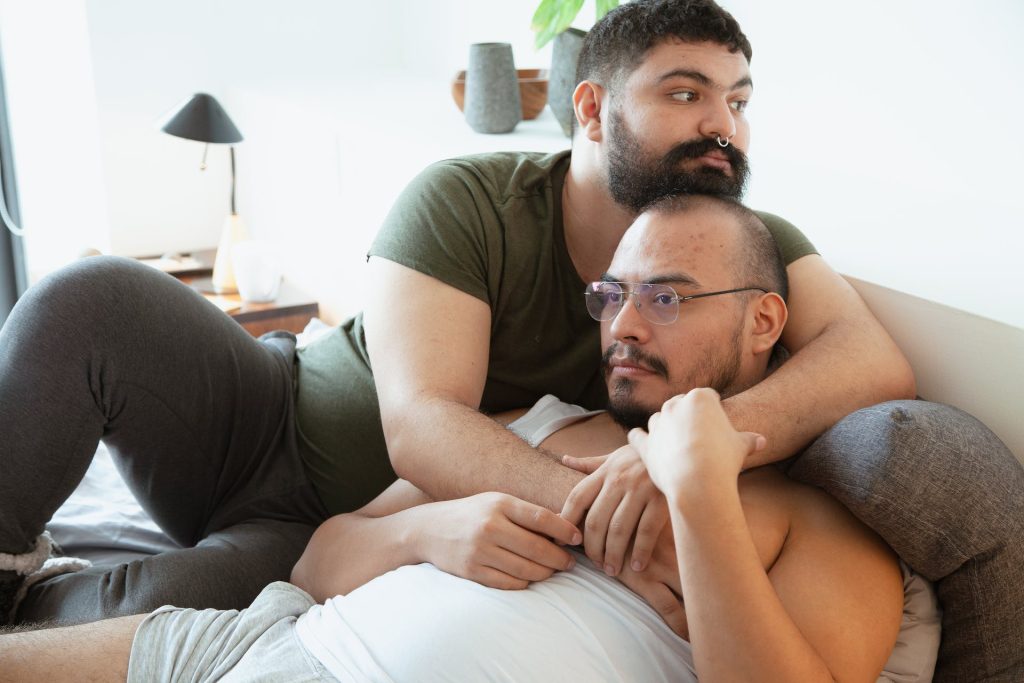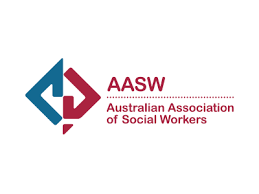Choosing a private counsellor, coach or psychologist for gay men requires background research. Governments in Australia have left this industry unregulated so many individuals promoting coaching or counselling sessions are inexperienced, unqualified, uninsured and lacking accountability. This leaves gay men vulnerable to breaches of confidentiality, unscientific methods and financial exploitation. Protect yourself by sourcing a reputable accredited mental health or counselling professional. Here are the most important aspects to consider.
1. Build a Therapeutic Alliance with an openly Gay Counsellor.
It makes sense to consult a professional who is comfortable with being gay. You should be able to determine this from a therapist’s website or LinkedIn profile. It is not an overshare. Any psychotherapist or psychologist for gay and sexuality related concerns who identifies as LGBTQ+ can be publicly ‘out’. There isn’t one gay lifestyle. Our lives are as diverse as our identities. Straight therapists can be shocked by stories from gay clients and not understand the exclusion and competition experienced by gay men. A counsellor who embraces his own homosexuality will, ideally, not judge your behaviour and remain empathetic.
Shop around and take a good look at how any counsellor or psychologist for gay men appears on the Internet. Some offer an initial free session, but don’t let this be the deciding factor. The initial meeting with a gay therapist should not be a sales pitch. And 15 minutes is not adequate time for a proper assessment of your circumstances. A therapist will use a brief consultation to decide whether to take you on. Keep in mind their time is valuable. You might find out more from their web presence or social media. Does what you read resonate with you? Do you feel comfortable consulting them? Make a shortlist of those who are a better fit.

2. Choose an Experienced Mental Health Therapist or Psychologist for Gay Men.
Counsellors improve with experience. A recent graduate won’t be as experienced as one who has been working with gay people for a decade or more. It makes sense to engage a professional who has some years under their belt. A more experienced psychology provider is likely to be available over the longer term. A high proportion of counsellors and coaches close up business within the first two years. If you need to return, it is logical to choose a practitioner with a record of success who is more likely to remain in business.
Consulting a therapist or psychologist for gay men for the first time, you might be tempted to select a cheaper option. But more experienced practitioners are likely to be charging at least the recommended fee for their profession. Cost might be important but try not to let it be your first consideration.
If you can’t see much of an employment or professional history detailed online, that is a red flag. Take a look for your therapist or coach on LinkedIn, check out the details about their background on their website and look for a social media presence. If the person does not appear to exist professionally it is not a good sign. You should at least be able to ascertain their training and qualifications. Qualifications are critical to accreditation with a professional association and the year of graduation may provide an indication of their level of experience.
Looking for a gay mens therapist? Contact me now.
3. A Professional Counsellor or Psychologist for Gay Men will have University or College Qualifications.
Don’t underestimate the significance of qualifications. Qualifications mean that experienced counselling professionals have trained and assessed the graduate. They lead to eligibility for membership of a professional association. This in turn provides accountability and some protection for LGBTQ+ psychology and coaching consumers.
So what are the best qualifications for a gay therapist? Over 30 years in human services has shown me the actual qualification matters less than the surety of training and accountability to a reputable professional body. The therapeutic alliance between a gay client and their therapy provider, in addition to the therapist’s experience, are more significant than the actual job title of the provider.

In Australia, there are a number of different professions such as counsellors, coaches, psychotherapists, mental health social workers and psychologists working privately as talk therapists. Assuming all are qualified and professionally accountable, they may all be doing similar work. Psychiatrists are a little different. A psychiatrist is a medical doctor who has completed at last 10 years training and can also prescribe medication. Psychiatrists generally require a GP referral and are more expensive to consult. However most people don’t require the services of a psychiatrist unless they have a serious mental illness, medication complication or other extenuating circumstances.
Training does not stop for reputable therapists. Our associations require us to complete continuing professional education (CPE) to maintain membership. We meet regularly with another experienced practitioner for mentorship, guidance, reflection, to discuss the way we conduct ourselves in practice and ethical issues. We call this ‘professional supervision’ and it enables Accredited Mental Health Social Workers and other professionals to work safely.
4. Registration or Accreditation with a Professional Association means Good Therapy.
You should find a gay coach, counsellor or psychologist for gay men who has the endorsement of a reputable professional body. Doing so will ensure they:
- Have approved qualifications and training;
- Continue to learn and develop their skills through professional development each year;
- Have insurance cover for professional indemnity;
- Comply with a Code of Ethics around practising with dignity, respect, evidence-based care, maintaining your confidentiality and acting ethically.
For example, if you find an Australian psychologist for gay related matters, the Psychology Board of Australia and AHPRA regulate them. The AASW takes responsibility for accreditation of Mental Health Social Workers. The Australian Counselling Association or PACFA represents the interests of counsellors and therapists outside these professions.
Other organisations provide additional verification of specialisations. Good Therapy is a directory where you can see memberships of professional associations. The Blue Knot Foundation has a Health Practitioners Database listing professionals approved to provide trauma-informed services.
Professional accountability protects against your psychological service provider behaving unethically. Counsellors and psychologists are in positions of power and are obliged to respect our clients’ vulnerability and maintain boundaries and confidentiality, even when the therapeutic relationship has ended. If your counsellor suggests they have to wait some years for a date with you, take it as a warning sign. Ethical practitioners never engage in personal romantic or sexual relationships with former clients because it constitutes an abuse of power. If your treating professional crosses the line, you can take it up with their professional association.
5. What Kind of Therapy or Approach is Best for Gay Sexuality?
I would argue the specific approach used by a counsellor or psychologist for gay sexuality related concerns is less important than their experience or how comfortable you are working with them. There are so many modalities of treatment including the Medicare endorsed focussed psychological strategies like Cognitive Behavioural Therapy (CBT), Relaxation Strategies, Stress Management, Narrative Therapy and other Solution Focussed Approaches, Dialogical Practices, Emotional Freedom Techniques, Gestalt Therapy, Mindfulness-Based Compassion Therapy… the list goes on. Methods are only as good as the treating professional. Do your own research or, better still, try out a session and see how it feels.

I support therapy that avoids pathologising a person. By ‘pathologising’, I mean assuming you are deficient, sick, disordered and have no capacity to make change in your life. Collectively, gay men have a long history of being treated like they are abnormal or have something wrong with them. Conventional psychology is deeply rooted in individualising your experience and diagnosing disorders.
Instead of reinforcing self-doubt, a good therapist or psychologist for gay related concerns will encourage you to develop trust in yourself. This is important, particularly if you are experiencing bullying or gaslighting in a gay relationship. Many of our experiences are shared against a background of heteronormative culture. Take care to avoid therapeutic approaches that simply reinforce ideas there is something wrong with you because you are gay, bisexual or queer.
6. The Danger of Gay Conversion Therapy and False Promises.
‘Gay Conversion Therapy’ is not therapy at all but religiously-motivated indoctrination. No scientific evidence suggests that human sexual orientation can be changed. A psychologist for gay and lesbian clients has a conflict of interest if they are prioritising a religion (e.g. a ‘Christian counsellor’) or public health or the institutions of marriage or monogamy or marketing a product instead of focussing on your reasons for making the appointment. Ethical counsellors and psychologists for gay related therapy will prioritise what you bring to therapy, not their own interests.

It is unprofessional to make false promises or fabricate testimonials or endorsements. These include making claims to ‘cure’ a condition within a certain number of sessions or guarantee a result by spending a certain amount of money. The worst examples are some gay dating coach services, particularly those where the supposed coach has no qualifications, no professional association membership and is not bound by any ethical code. Advice for gay dating should not exploit the men seeking it.
Therapy sessions ideally do not create dependency. A psychologist for gay men will usually be unwilling texting about a therapeutic matter unless there is an emergency. Out of session engagement raises questions about how that therapist is maintaining boundaries in their own life.
Your first session gives you a sense of how future consultations will proceed. Is your therapist going to sit and say nothing? Are they going to dialogue with you? Or will they spend the entire hour trying to teach you something you don’t need to know? How you use the time is also significant. Therapy is not just about dumping and feeling relieved. A professional therapist or psychologist for gay men may challenge your ideas and thought patterns. It might feel unsettling at times and you might need to do some tasks between the sessions.
Make an appointment with a gay counsellor face to face or online
7. How Much Does it Cost to See a Therapist or Psychologist for Gay Men?
In Australia, counselling and coaching professionals can set their own charges. The main professional associations publish recommended fees. And unless it is a government service, anyone providing ‘free’ coaching, therapy or counselling is likely to have another agenda, like attracting you to a cult or marketing scheme, which leaves you vulnerable to abuse. The exceptions are non-profit charitable organisations which usually have a sliding scale depending on your income. If these organisations are government funded, they will pay their professional counsellors but not pass on the full cost to you.
Accredited Mental Health Social Workers and psychologists for gay concerns offer rebates under the Better Access Mental Health provisions so you may receive around 30% back on the cost of Focussed Psychological Strategies. At the time of writing the Medicare benefit is only available for up to 10 consultations in a calendar year and both you and your therapist need to be in Australian territory. Medicare rebated sessions also have some reporting requirements. Some health funds like Teachers Health and BUPA in Australia also offer rebates. Unfortunately in Australia it is not legal to claim both a Medicare and health fund rebate for a psychology consultation.

Online therapy for gay men can be a lower cost than meeting in-person. Even if the fees are the same, you will save the cost of travel and travel time. Since the Covid19 pandemic, online counselling has become accepted practice and many LGBTQ+ people appreciate the comfort and convenience of meeting over Skype or Zoom.
Therapy is an investment in your well-being, your gay relationships and your future. I generally recommend anyone embarking on engaging a private therapist or counsellor budgets for at least 6-10 sessions over 6-26 weeks. You might need to also consider extra cost if shopping around for the right therapist. If you can’t afford a private therapist, charitable organisations often have a good counsellor or psychologist for gay / LGBTQ+ related matters although there might be a longer waiting time. In any case, if the practitioner is not a good fit for you, don’t be afraid to stop and find an alternative. Look around for qualified, accountable and experienced therapy professionals and you will avoid most of the risks involved.
To book a session or ask a question, contact me now.



